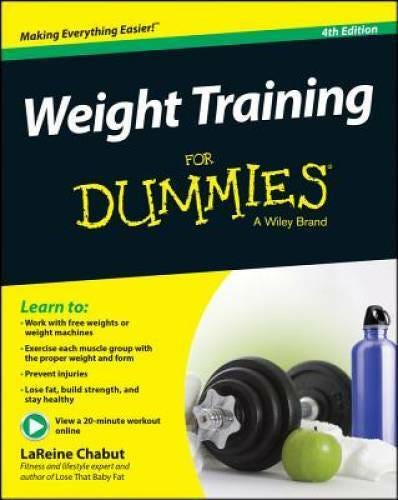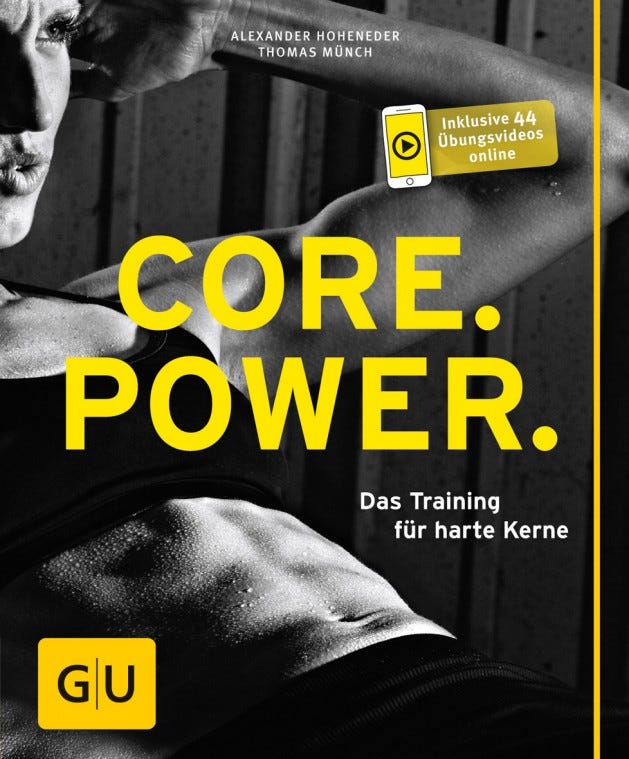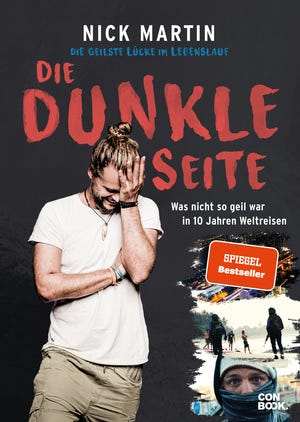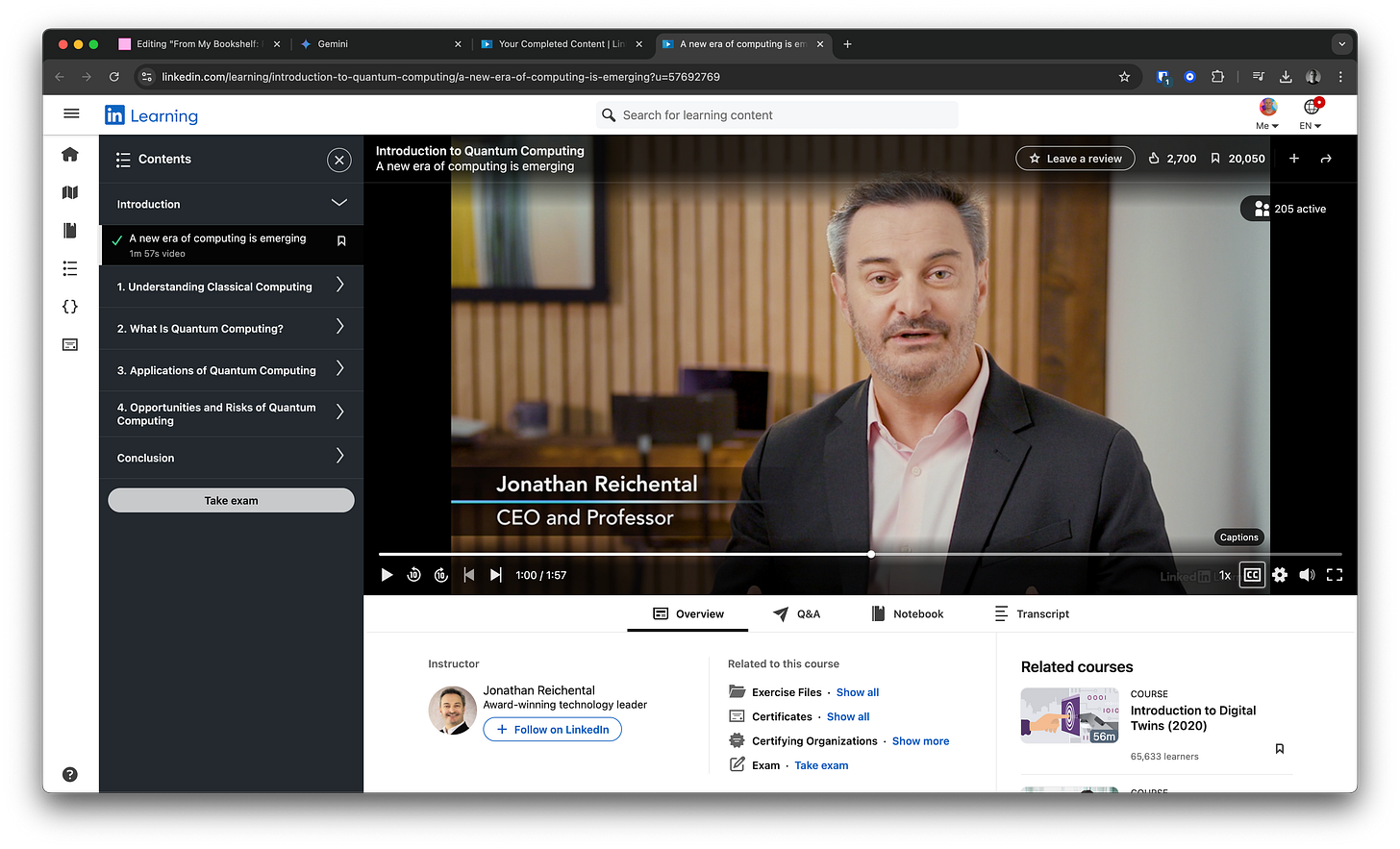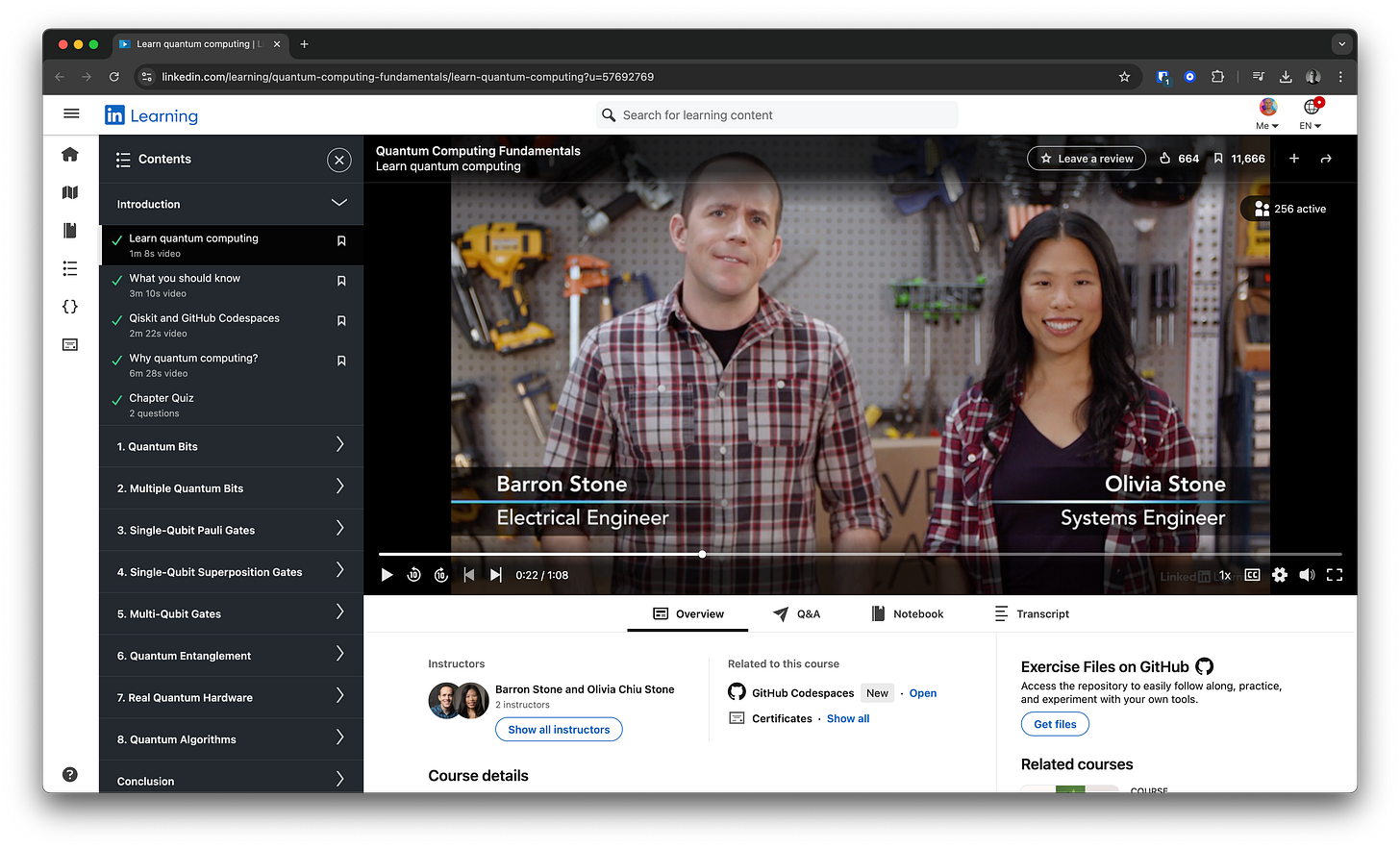The holiday season and early January provided the perfect opportunity to dive into some new topics, both on and off the page. My reading list has been heavily focused on sports science lately, exploring the fascinating intersection of performance, physiology, and technology.
Alongside my reading, I also dedicated some time to expanding my knowledge in a completely different area: quantum computing. I completed two excellent courses on LinkedIn Learning that were absolutely worth the time investment.
And, as always, my trusty Tolino eReader and the Onleihe library system have been invaluable resources. For just €12 a year, I have access to a huge range of ebooks, magazines, and audiobooks—a fantastic deal! (Definitely check if your local library offers something similar.) So, from sports science to quantum computing, here’s a look at what’s been occupying my mind recently. Some of the book recommendations are in German, so apologies in advance.
Weight Training for Dummies
by LaReine Chabut
To kick off my exploration of sports science, I started with "Weight Training for Dummies" by LaReine Chabut. My primary goal was to gain a better understanding of the major muscle groups and how to effectively train them using bodyweight exercises and minimal equipment. The book provided a solid foundation in workout structure, emphasizing the importance of warm-ups and cool-downs. One key takeaway was that stretching should always come last, which prompted me to move my morning yoga sun salutations to the end of my routine. To ensure I was properly warmed up, I added some jumping jacks to the beginning.
Core Power
by Alexander Hoheneder and Thomas Muench
Following "Weight Training for Dummies," I turned to "Core Power" [German] by Alexander Hoheneder and Thomas Muench. This book provided a deeper dive into core strengthening, explaining its importance not only for daily life but also for various sports like running. While I was familiar with many of the core exercises, the stretching section truly stood out. I was inspired by several of the stretches and took the time to research them further, adding some promising ones to my training plan. "Core Power" is a quick and practical read, and I especially appreciated its focus on exercises that require minimal equipment—just your body and a mat—making it ideal for those who travel frequently.
Die geilste Lücke im Lebenslauf – Die dunkle Seite
by Nick Martin and Anita Vetter
A decade of world travel has made Nick a changed man: open-minded, adventurous, and reflective. He's refreshingly honest about the less glamorous side of travel, recounting tales of makeshift crutches, shootouts, and robberies. With wit and sarcasm, he reveals the world behind the polished Instagram photos, showing that misadventures are often part of the journey. While these stories might initially make you crave the safety of home, Nick's unwavering optimism prevails. He reminds us that light exists because of darkness, and ultimately encourages us to embrace our own adventures.
Runner’s World
Editions 12/2024 and 01/2025
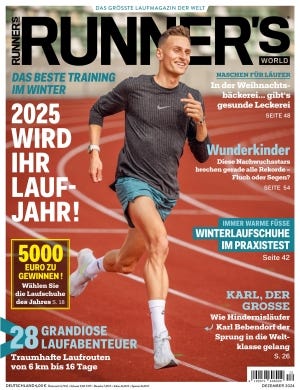
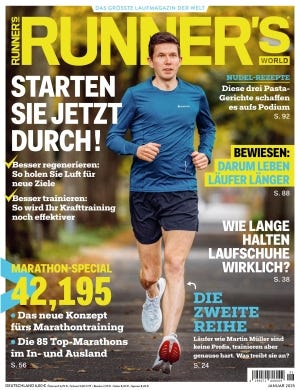
I also picked up the December 2024 and January 2025 issue of Runner's World. It's always a great way to stay informed about upcoming races and running events. In fact, it inspired me to sign up for the Tegernseelauf!
Introduction to Quantum Computing
by Jonathan Reichental
Shifting gears entirely, I also dedicated some time to exploring the fascinating world of quantum computing. I started with "Introduction to Quantum Computing" by Jonathan Reichental on LinkedIn Learning. While created in 2019 and lacking live coding, it provided an excellent overview of key concepts like superposition and entanglement. The course is relatively short, making it easy to complete in a few hours and giving me a good foundation for discussing this trending topic.
Quantum Computing Fundamentals
by Olivia Chiu Stone and Barron Stone
To deepen my understanding of quantum computing, I took "Quantum Computing Fundamentals" by Olivia Chiu Stone and Barron Stone on LinkedIn Learning. Being a more recent course (April 2023), it felt much more up-to-date and offered a significant step up from the introductory material. This course not only reinforced the fundamentals but also introduced practical coding using GitHub Codespaces. A real highlight was the opportunity to run my first quantum program on IBM's Quantum Cloud using the QisKit SDK. The course dedicated a good amount of time to explaining quantum gates, for example the Hadamard and CNOT gates (key for entangling qubits). The instructors' use of visual aids, like swimming balls to illustrate the Bloch sphere, was particularly effective and engaging. While I'm still processing some of the more complex concepts and not yet writing production-ready quantum code, I now have a much clearer picture of quantum computing's capabilities, its relationship to classical computing, and how to contextualize current developments in the field.
I hope you found this overview of my recent reading and learning experiences interesting! I'd love to hear what you've been reading or learning lately. Feel free to share your recommendations in the comments below.






